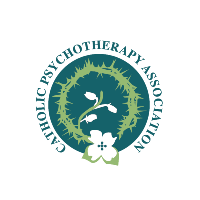
- 904.420.0536
The term psychotherapy is derived from the Greek psyche (ψυχή), meaning “soul,” and therapeia (θεραπεία), meaning “healing”. Modern psychology identifies “psyche” with a set of conscious and unconscious manifestations of experiences and behaviors. In the Patristic tradition, the term “psyche” denotes the spiritual element of man’s existence, which is in unity with the body. For the ancient Fathers, the human person and psychological functions are intimately connected with an understanding of salvation as healing: a return to humanity’s original creation in the image and likeness of God. A therapeutic approach is needed that incorporates biological, psychological and spiritual aspects of the person. This integrative approach to healing has its roots in Patristic anthropology, which emphasizes restorative healing of mankind. This presentation will examine various Patristic insights and approaches, and utilize clinical histories to illustrate how the teachings of the Desert Fathers can be integrated with contemporary psychological practices.
Target Audience: Psychologist, Psychiatrists, Social Workers, MFTs, Substance Abuse Counselors, Nurses, Chaplains, Clergy
Course Content Level: Advanced
Learning Objectives:
This program does not qualify for NBCC credits